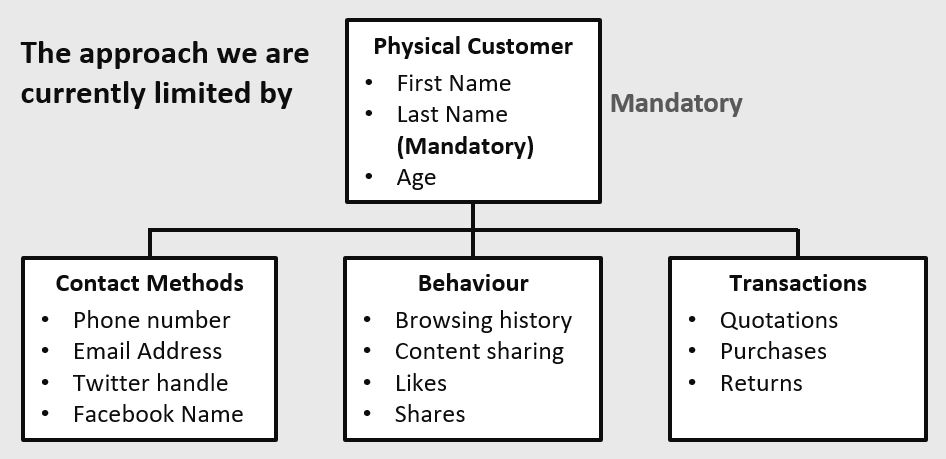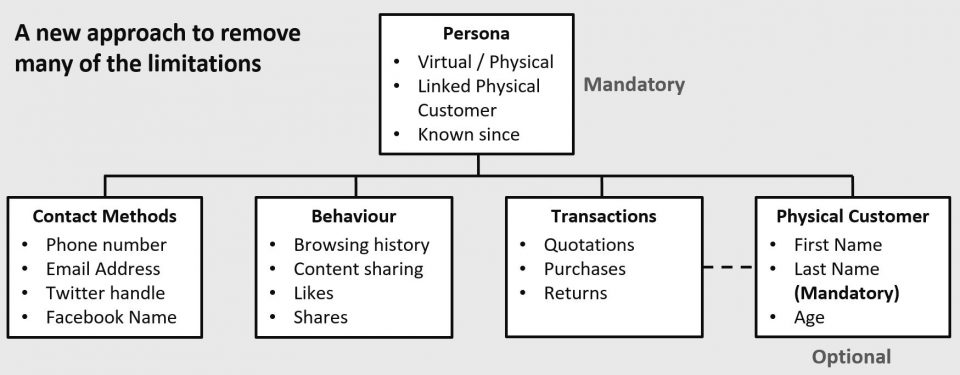Whether it’s called Last Name, Surname or Family Name this field remains stubbornly mandatory in virtually every customer database that I come across in my work. This constraint can severely hamper organisations’ attempts to move their marketing and CRM activity into a world of social media and digital content.
There seems to be a need in IT Teams and Data Managers to have something to hold as a core piece of data stored about every person on their database aside from the unique reference number allocated by their systems. It results in forcing website enquirers to share their last name when this is of no benefit to them when they simply want to have a brochure sent to their email account. It also means that Facebook users who become active contributors to an organisation’s Facebook presence cannot be stored on a database because they haven’t shared their name.
But surely some of the most important information about future customers or valuable (but anonymous) advocates is captured from sources where names are very much optional. So, why do many organisations seem so happy to accept this constraint? Even those that make an initial attempt to enable ‘virtual’ customers and prospects to be stored get a hard push back from their IT department or systems vendor saying that “Last Name is Mandatory and that’s that”. Zoho, one of the market leaders for instance, force Last Name to be mandatory in the person record on their basic CRM system. Without a person record you can’t store a contact method so a ‘dummy’ person record has to be created with a Last Name populated from the Facebook name, for instance.

In fact, the challenge is even wider than whether a Last Name is needed or not. It extends into questioning the mandatory nature of a ‘Physical’ person record. Increasingly, we find out interesting attitudes and behaviours about individuals whom we only know as a contact method such as a Twitter handle, email address or Facebook name. For instance, we may want to record content contributions, website visits, likes etc. before we know who the physical person is. We are then forced to create a person record for them to which we can link the contact method we have collected for them. Not exactly efficient or good practice!
So, is there a solution to this challenge? I believe that increasingly the big package and cloud customer database vendors will move to accommodate ‘virtual’ customers who may or may not have a ‘physical’ customer record attached to them. While this change is happening we are seeing leading organisations begin to go it alone where they have the capability to do so. This is either because they are building a solution from scratch or because they are implementing some form of overlay customer data repository such as a Master Data Management (MDM) solution for Customers.











I guess Cher and Madonna can’t buy cars!
But seriously, a good thought piece.
In the B2B world you can store a company name without a known contact, but this is a much more interesting challenge.
Like the ‘do I have to put a name’ to comment point of the last contributor! But agree this is a very thoughtful piece and agree with the basic premise although I imagine our IT team would be horrified at not capturing surnames!